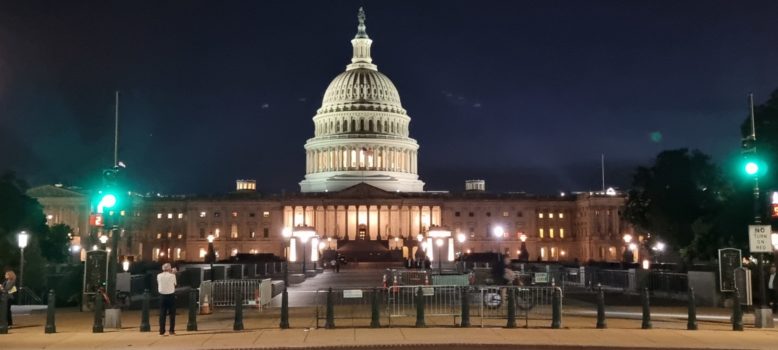(Arjun Singh, The Center Square) Congress’s job approval rating among voters in June was just 16%, one of the lowest in history. But not all members of Congress are equal, not in the eyes of a taxpayer-focused group that scored them on fiscal responsibility.
The National Taxpayers’ Union (NTU), a fiscally conservative taxpayer advocacy organization, released its annual list of “Taxpayer Scores” for members of the House of Representatives to assess their fiscal voting record. The scores, on a scale of 100, are assessed according to votes taken on spending, taxation, and borrowing, with members scored according to whether their vote supported a “pro-taxpayer” platform.
For 2023, the first session of the 118th Congress, the NTU assessed the House overall to have an average score of 43%. Among House Republicans, who hold the majority, the average score was 74%, while the average score was 11% among House Democrats.
“It is essential for Americans to be informed as to how their elected officials vote, not just what they say,” Pete Sepp, president of NTU, said in a statement to The Center Square. “Average citizens and families need to make fiscally sound decisions and we expected nothing less from Congress. NTU’s rating holds our lawmakers accountable.”
The highest-scoring member of the U.S. House was Rep. Thomas Massie, R-KY, a Republican who has criticized excessive government spending and who supported an effort to remove House Speaker Mike Johnson for bringing spending legislation to the floor. Massie was rated at 96% and given a “Taxpayers’ Friend Award” by the NTU, along with 37 of his Republican colleagues.
Not a single Democratic member was scored highly by the NTU. The lowest-scoring member in the House was Rep. Robert Cortez “Bobby” Scott, D-VA, who had a score of just 5%. During the fiscal 2024 appropriations process, Scott requested several million dollars’ worth of targeted spending measures, known as “earmarks,” to be added into appropriations bills.
House Majority Leader Steve Scalise, R-LA, was scored at 81%, while House Appropriations Committee Chairwoman Kay Granger, R-Texas, who oversaw the 2024 appropriations process, scored 68%. House Minority Leader Hakeem Jeffries, D-N.Y, by contrast, scored 10% while former House Speaker Nancy Pelosi, D-CA, scored 11%.
House Ways and Means Committee Chairman Jason Smith, R-MO, whose committee has jurisdiction over all taxation, scored at 77%.
Speaker Johnson did not receive a score as, by custom, the speaker usually doesn’t vote on routine bills and his vote is not recorded unless desired. Johnson was instrumental in the passage of two consolidated appropriations bills in March 2024 that funded the government, spending measures that were heavily criticized by fiscal conservatives.
Each vote taken was weighted according to its relative importance to fiscal responsibility as judged by NTU, with conservative legislation receiving a higher rating. The most heavily weighted vote was on the Limit, Save, Grow Act of 2023, a partisan bill that would have raised the federal debt limit to avoid a default in exchange for heavy spending cuts.
Some members of Congress who received high scores touted their performance.
“Congresswoman Spartz was honored with Taxpayers’ Friend Award by National Taxpayers Union,” the Office of Rep. Victoria Spartz, R-IN, wrote on X.

